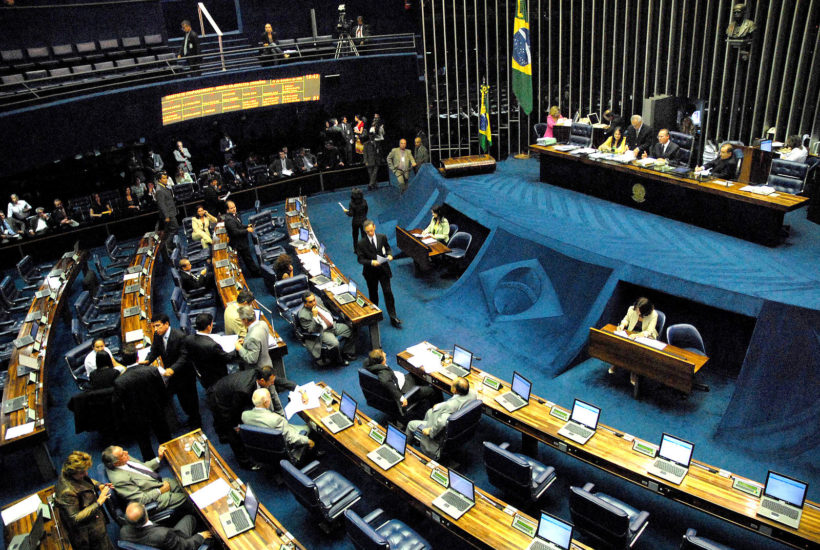Crowdfunding
Delayed Brazilian entrepreneurship law: the harms to entrepreneurs
Regulations that were signed into Brazilian law on 28 February of this year have experienced a two month delay in their implementation. The law, which was designed to aid the development of entrepreneurship and crowdfunding in the country through various programs, were vital to entrepreneurs in the country. According to some, this delay in the regulations has hurt entrepreneurs.

A new regulation that operates on the Law of Entrepreneurship and Innovation in Brazil experienced a significant delay before coming into effect. The new law brings with it, amongst other things, the incorporation of entrepreneurship into the curriculum of the educational system, along with the development of crowdfunding (collective financing) in the country.
It was on 28 February 2020 that the law was officially signed into law, ten days after it had passed the Bazilian National Assembly. The regulation should have been ready to come into effect by May 28th—that is, specifically—90 days later, as established by Brazilian law. However, it wasn’t ready until July 27.
Issues in crowdfunding are becoming ever more important as more entrepreneurs come to rely on it—every day crowdfunding stories are in the daily financial news, which you can follow with our free companion app, Born2Invest.
Entrepreneurs have been badly affected
For Andrés Zurita, director of the Alliance for Entrepreneurship and Innovation (AEI), this delay of two months means that entrepreneurs have been badly affected.
“The blame for the delay lies with the Legal Secretariat of the Presidency who caused everything to fall drastically behind schedule. The economic situation even warranted not waiting for the deadline to be met, and the regulations really should have been issued sooner. For an entrepreneur who is just starting up—who is facing problems in liquidity and experiencing a lack of market—one day is a lot, one month is unsustainable and two months can break the whole lot. So having to endure an additional two months is a lot. It was not given the priority that was needed,” he mentions.
SAS Companies not affected
Daniela Espinoza, lawyer at AEI, indicates that most of the benefits in the law needed the regulations to start, except for SAS companies (Simplified Stock Companies), promoted by the Superintendence of Companies, Securities and Insurance (SCVS) since last May 18th.
“The SAS benefits were the only ones that did come out before the regulation. It is a reform to the Companies Law. Everything else is anchored to the National Entrepreneurial Registry,” explains Espinoza.
The vice-minister of Production and Industries, Jackson Torres, says that with the regulation, some issues such as the SAS benefits are already being implemented and he accepts an evident delay in the formation of the National Council of Entrepreneurship and Innovation (Conein).
“The change of vice-president has altered our schedule a little bit, but this week or, at the latest, next week we will meet”, he assures and adds that they are working on the benefits.
Esteban Albornoz, president of the Assembly’s Economic Development Commission, points out that the regulations complement what has already come into effect with other regulations. However, he says that some issues could have been addressed since last February. He believes the regulation was only “a pretext”.
Regulation of crowdfunding could have already been implemented
“The confirmation that the CONEIN could already be implemented, although it is true that the regulation may specify certain aspects, but it could already be implemented. Regulating the issue of crowdfunding could already be implemented,” he explains, adding that the Legislative did comply with the approval.
Albornoz says that, two weeks ago, the committee followed up on this issue. He has requested information from the relevant bodies such as the Ministry of Production and will then convene this State portfolio, the Internal Revenue Service (SRI), Customs, the Secretariat of Higher Education, Science, Technology and Innovation (Senescyt), among others.
With the publication of the regulations, the National Entrepreneurial Registry will also become operational, where there will be some incentives such as credit lines, preferential rates for the registration of intellectual property rights, health permits and others.
If the times were met, it would have already benefited, since the resolutions of the entities that are linked to the regulation have a 90-day term, that is, a little less than the delay of the regulation.
For Guillermo Maldonado, founder of the Club de Emprendedores, too much was expected. “There are many people who are standing up to apply some of the issues in the law. In the case of the registry, it allowed you to move forward on some things, such as promoting entrepreneurship centers, obligations to pay invoices within 30 days. The national registry was not created (in time) and these are benefits you cannot enjoy. Delay certainly affects entrepreneurship.
__
(Featured image by Wilson Dias (Agência Brasil) via Wikimedia Commons)
DISCLAIMER: This article was written by a third party contributor and does not reflect the opinion of Born2Invest, its management, staff or its associates. Please review our disclaimer for more information.
This article may include forward-looking statements. These forward-looking statements generally are identified by the words “believe,” “project,” “estimate,” “become,” “plan,” “will,” and similar expressions. These forward-looking statements involve known and unknown risks as well as uncertainties, including those discussed in the following cautionary statements and elsewhere in this article and on this site. Although the Company may believe that its expectations are based on reasonable assumptions, the actual results that the Company may achieve may differ materially from any forward-looking statements, which reflect the opinions of the management of the Company only as of the date hereof. Additionally, please make sure to read these important disclosures.
First published in El Universo, a third-party contributor translated and adapted the article from the original. In case of discrepancy, the original will prevail.
Although we made reasonable efforts to provide accurate translations, some parts may be incorrect. Born2Invest assumes no responsibility for errors, omissions or ambiguities in the translations provided on this website. Any person or entity relying on translated content does so at their own risk. Born2Invest is not responsible for losses caused by such reliance on the accuracy or reliability of translated information. If you wish to report an error or inaccuracy in the translation, we encourage you to contact us.

-

 Impact Investing2 weeks ago
Impact Investing2 weeks agoEU Eases CO2 Tax Burden on SMEs with Revised CBAM Rules
-

 Fintech3 days ago
Fintech3 days agoRobinhood Expands to Europe with Tokenized Stocks and Perpetual Futures
-

 Business1 week ago
Business1 week agoAmerica’s Debt Spiral: A $67 Trillion Reckoning Looms by 2035
-

 Crowdfunding7 days ago
Crowdfunding7 days agoTasty Life Raises €700,000 to Expand Pedol Brand and Launch Food-Tech Innovation

























